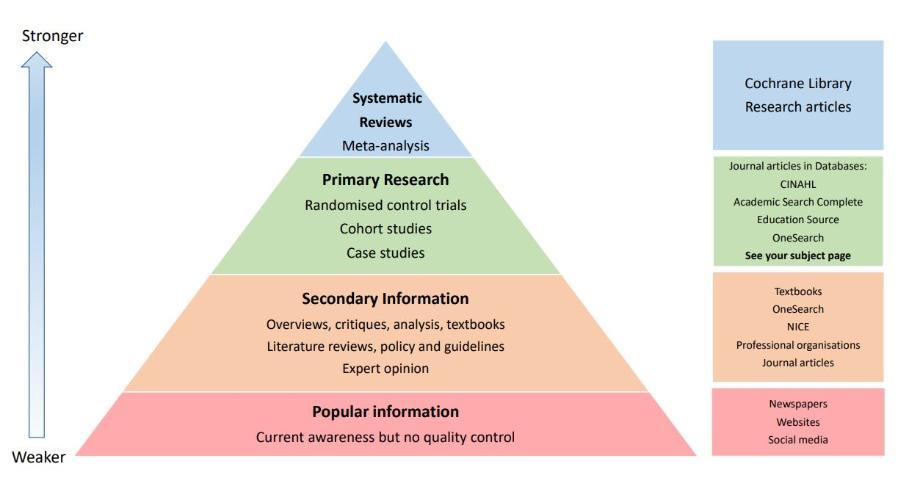Not all sources are considered equal and it will depend on your subject and assignment as to what kind of information is appropriate for your work. Generally you want "academic" sources but a blog by a leading expert in the field might be appropriate too. You need to develop an awareness of the purpose and quality of the information you are using.
A useful tool is a quick WWWW approach.
| WHO | Who is the author and what is their credibility? Academic/expert <--> Individual/journalist |
|---|---|
| WHERE | Where is it published? In a peer reviewed journal <--> .com or .co.uk website? |
| WHAT | What kind of information and is it relevant? Research/ commentary/ standards |
| WHEN | Is it current? |
The Website Evaluation Ticklist will help you appraise online content more closely. You can also check out the critical reading page to step up your evaluating skills.
Hierarchy of Evidence
This is one version of a Hierarchy of Evidence but you will find many others online. Used mainly by health subjects, it is still a useful visual for evaluating the quality of research evidence.

